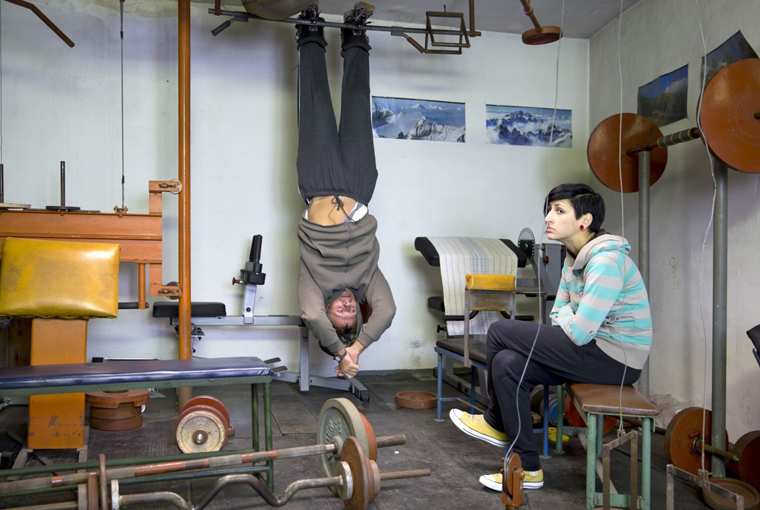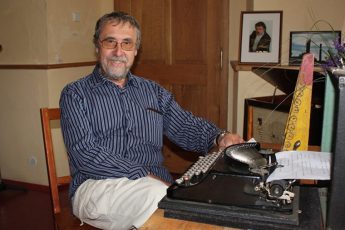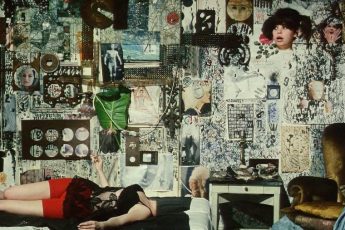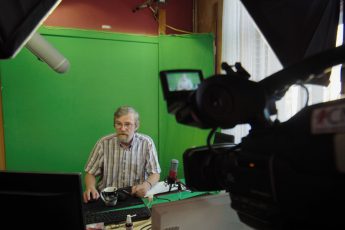Dissident Nostalgia
Ivan Ostrochovský, Pavol Pekarčík, Peter Kerekes’ Velvet Terrorists (Zamatoví teroristi, 2013)
Vol. 41 (May 2014) by Colette de Castro
Stano, Fero and Vladimir, three Czech dissidents who fought against the pre-1989 regime, are portrayed in this 2013 experimental film. In fact, they were the only people jailed for terrorist acts in Czechoslovakia during normalization in the country. Today, it is not so surprising that there were only three of them as it is that they were jailed at all – their acts were so tame sometimes as to be laughable. All of them are friendly, funny and amicable – far from the image we might have of a modern-day terrorist. Their stories are exposed one at a time, and learning about their lives and pasts makes us realize that they are just like us. Are they?
Stano and Fero have grown old and out of shape, their hair graying. Stano’s fumbling attempts to get a date with a woman and Fero’s romantic reminiscing about his ex-girlfriends both convey their innocuousness. However, there is a spark of revolution in their part-time activity, which, in line with their past, happens to involve blowing things up. Stano blows up trees and Fero blows up cars – peacefully, far away from human life. The scenes featuring these ceremonies are an uncanny mix of something between Jackass and an activist documentary. In one scene, Fero watches an explosion from afar with binoculars on a mountaintop while eating a sandwich with his son. Finally there is Vladimir, the serious one. He is training, a fighter. One isn’t sure what to think about Vladimir.
The first alleged terrorist, Stano, has a penchant for blowing things up. As a young man, Stano was a dreamer and a fan of British hard rock. His anger about the totalitarian Communist regime built up over time, and one day he prepared a bundle of explosives to blow up the speaker’s platform before the May day parade. Drunk, he was arrested in the middle of the town square with an untouched bag of explosives in his hands. Never having planned to hurt anybody or cause any permanent harm, he still spent five years in prison.
The second, Fero, a rather short, mustachioed gentleman, is somewhat more earnest than Stano. He had plotted to assassinate the president Husák in the hope of precipitating an anti-communist revolution. Yet something of the frustration and ineffectiveness of their actions comes through strongly in these first two portraits. One gets the feeling of seeing “boys and their toys” with too much time on their hands. If they are earnest, they are also confused.
Vladimir, the third case, has a different life from the others. He plots things out vigilantly, his gaze being intent and persistent. Vladimir’s tale is that he repeatedly blew up public billboards advertising communist ideals. Unlike the others, he was persistent and had several spells of jail time. When we first meet Vladimir he is dusting his plants with a large feather duster. Vladimir’s romantic relationship, though slightly exaggerated, gives the film a jolt into the present.
The three protagonists are dealt with by three directors. Ivan Ostrochovský, Pavol Pekarčík and Peter Kerekes collaborated on this project to make a film that is harmonious and clever. The ternary effort is justified by the depth of psychological analysis provided in the study of the minds of these three men. Peter Kerekes, also the film’s producer, told me during the interview: “We wanted the number three, like in any fairy tale”.
Like in many “documentaries” of this kind, it is the truth which is the most unexpected, the least staged moments turning out to be the best ones. With plot twists, romances and a political edge, the film, like it’s title, is intriguing. But sometimes one gets the feeling that it’s trying just a bit too hard to appeal to a wide, politically diverse audience. The protagonist’s hard parts are softened, and their naivety is often highlighted. They are treated with kid gloves, and the audience is left wanting to know more about their incentives and their misgivings…Then again, this may lay in the nature of their job: what’s the use of being a terrorist if you can’t attract attention?




Leave a Comment